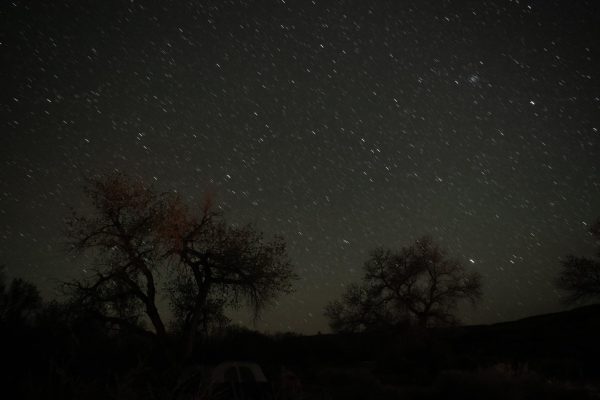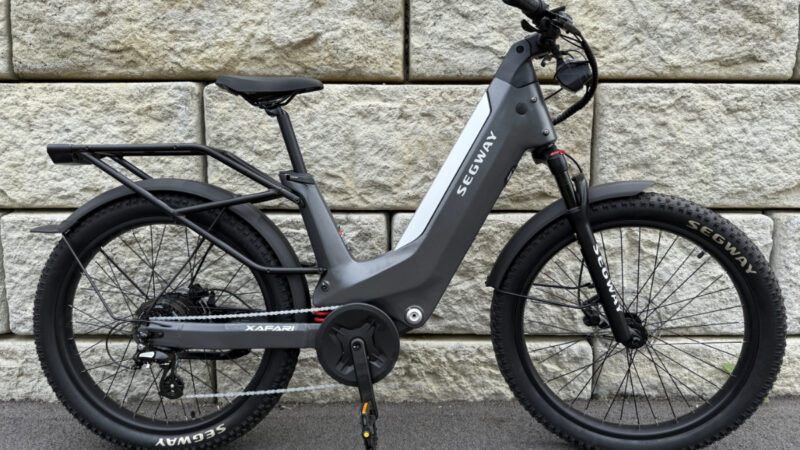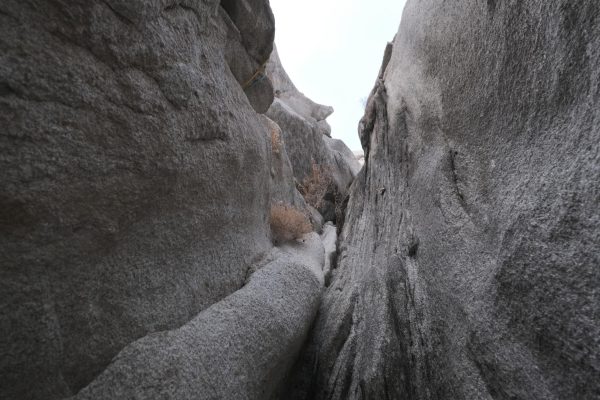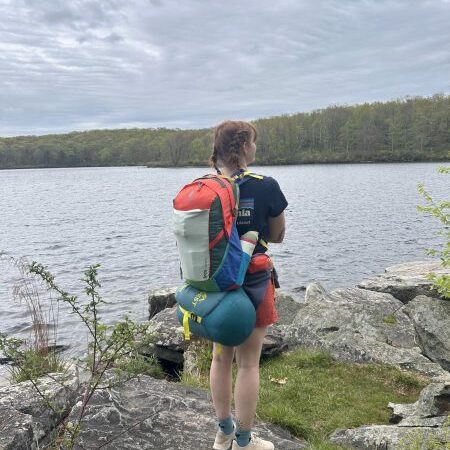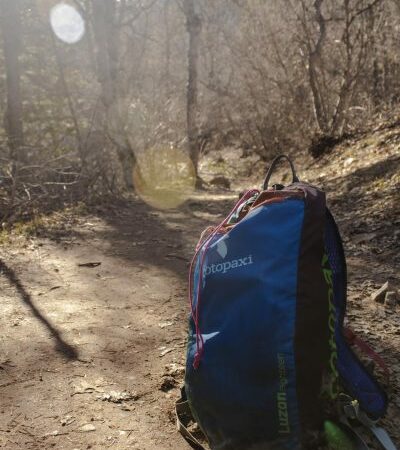It is Not Good to be Alone
The wind whips at the rain cover of my tent so violently I fear its pole will snap in half. I’ve already gotten up to secure things once but waiting for the weather to die down a second time seems pointless; the wind is simply too loud and intense to ignore. Quickly I unzip my sleeping bag and throw on my boots, afraid the wind will tear the tent’s fabric. I move stiffly in the dark, talking to myself as my fingers struggle to collapse the pole. Though I do my best, I cannot seem to separate the poles. I’m almost embarrassed, but the wind distracts me by threatening repeatedly to rip the rain cover from my hands.
Rather than dwell on my frustration, I simply resign to hoisting the entire thing inside my tent. I place it (still completely connected) parallel to my body on the ground, intending to finish deconstructing it in the morning. After getting up to pee one last time, I know I can finally sleep. But now, I am uncomfortably cold. My toes are numb in the bottom of my sleeping bag, my exposed nose and cheeks frigid to the touch. I’m wearing most of my layers already, and don’t know what to do besides pull the top of my sleeping bag over my head and curl my body into a tight cocoon to preserve warmth.
It is March 8, 2023, the night of my first solo trip.
When I told people I wanted to camp in Southern Utah by myself for a couple of nights, they looked at me like I had told them I was about to jump off a building. In some of their eyes I sensed confusion mixed with curiosity, but in most I sensed fear, disbelief, and concern. “Why aren’t you going with anyone?” “It’s not a good idea to camp alone as a woman. Aren’t you afraid something will happen to you?” “Won’t you be lonely?”
My entire life I’ve been told humans are social creatures, that we are wired to be around other people. For years I’ve noticed the way society discourages solitude. It is impossible to go more than a few hours without receiving a text or call from someone. It’s difficult to resist the urge to scroll through social media and stay caught up on other people’s lives multiple times a day, and often people don’t go long without interacting with someone face to face. It seems like we constantly feel a need to know what other people are doing, and rarely sit with ourselves and our thoughts as a result. We frequently feed ourselves material, listening to podcasts and music, or even playing white noise so as not to be alone inside our heads. It’s strange if someone goes to a movie by themself, and out of the norm if they take themselves to dinner. Under the gaze of people observing them is the assumption that something difficult or heartbreaking must have just occurred. Why else would someone be alone? No one chooses that.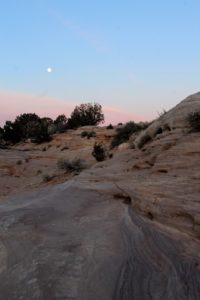
Despite solitude generally not being preferred or valued, I’ve prioritized being alone for years. Frequently I leave family dinners early to walk through my neighborhood. I spend lots of time in my room journaling and exploring my own head, and I enjoy solo hikes. I want to know myself, and sometimes that feels too difficult in the noise of company.
I’ve felt a desire to go on a solo trip for years, but it wasn’t until last fall when one of my friends asked me a simple question, that I committed to making it happen. “What is the longest time you’ve been by yourself?” As I wracked my brain hoping for nonexistent memories of solitude to resurface, I realized that I had probably never gone more than 18 hours without interacting with someone else. This fact surprised me; it made me feel embarrassingly dependent. The pull to go on a trip alone increased in strength. I wanted to know what it felt like to exist only with myself for a full 24 hours, if not longer.
On the morning of March 8th of this year, I began driving to Moab at approximately 10:12am. As I sang along to my stereo, I felt comfortable with the precautions I’d taken: having asked locals for safe camping locations, checked the weather, packed extra layers and food, bought pepper spray, and told my family exactly where I was headed. I also felt comfortable with the flexibility of my plans: I hadn’t decided on what hikes to do or how exactly to spend my time. I knew I wanted to stay for two nights but didn’t have a strict schedule outlined.
It was strange to feel things change inside my head as I drove. Initially I rejoiced in the excitement of it all, singing along to some of my favorite songs, staring at the surrounding mountains in awe, and feeling pumped up to finally be prioritizing something important to me. Later, when the day shifted into a dull gray as a consequence of the overhanging clouds, I turned off the music and just sat with myself and the sound of my mind. As I made my way through the barren landscape of Southern Utah, I reflected on a relationship I’d just gotten out of, talking to myself in the empty space of my car and letting tears fall freely onto the seat. I wasn’t sure how to identify what I was feeling, or why so suddenly I was hit with emotion. I just let myself feel.
After arriving and paying for a campsite, I set up my tent. I unrolled my sleeping bag and blew up my pad and just sat inside, journaling and writing for a bit, and mostly just giving myself space to exist. I didn’t feel pressure to immediately drive to a hiking spot, to explore the landscape, or do something physically quantifiable with the few hours I had before dark. I liked that I didn’t have to consider what someone else wanted or was thinking before making a decision. Instead, I simply did what I felt drawn to do. In this case, it meant sitting softly and silently, watching the patches of sun move on the red sand and thinking about what I was feeling.
I made myself tacos and hot chocolate for dinner before settling in my sleeping bag for the night. Unfortunately, this was the night I couldn’t sleep. Initially this was because of the dissonance in my head, then due to the loudness of the wind, and finally because of the temperature. Honestly, it was one of the most miserable nights camping I’ve ever experienced. I woke up with stiff appendages and somewhat dampened spirits, although I remained grateful to be doing something important to me. I pressed my hands into my cup of oatmeal to warm my fingers, took down my tent, and packed everything into my car. I drove to Arches National Park and intended to drive home to Salt Lake late that night. Though I had originally planned to stay two nights, I realized that an important part of solo trips and adventures is not making them look a certain way in order for them to “count.” The only rule I made for myself was that I wanted to be alone for at least 24 hours; other than that, it didn’t matter what I did or how I spent my time. If I wanted to come home after one night instead of two, that was fine. If I wanted to pay for a campsite or hike on a designated trail or do none of that, I was fine with that too.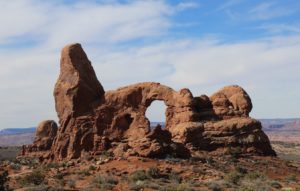
After hiking in Arches for a while, taking some pictures, and stopping to sit on rocks to write, I realized how much I enjoyed being by myself. I didn’t have any companions to worry about. Rather than having to multitask by thinking of what their experience was like and what they were thinking, I could be fully present, enjoying the landscape in a personal and intimate way. I felt really aware not only of my surroundings, but of myself. Sitting and writing in my journal was a stimulating and enlightening experience. As I asked myself questions and sat in silence, I discovered things about myself I didn’t know previously.
A few hours passed before I decided that staying another night would be empowering. I returned to the campsite to set everything up again, this time not even putting on the rain cover, and laying my emergency blanket underneath my sleeping bag to reflect my body heat.
I slept well and warmly, waking up with a grin because I hadn’t backed down from staying another night. Not only did solo camping help me feel more competent in setting up and using gear, but it helped me trust my gut and make decisions simply because I felt good about them. It empowered me to think that I traveled alone in safety as a woman. I had lived independently and by my own means even for just a couple of days. Being alone allowed me to explore myself as I explored the landscape, giving me valuable time to exist for me and no one else. It let me sit with myself and really ask what I was feeling and what I wanted and who I intended to be. More than anything, it made me want to camp alone again.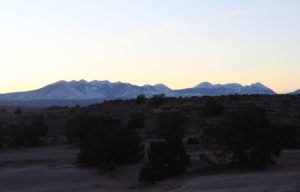
The post It is Not Good to be Alone appeared first on Wasatch Magazine.

